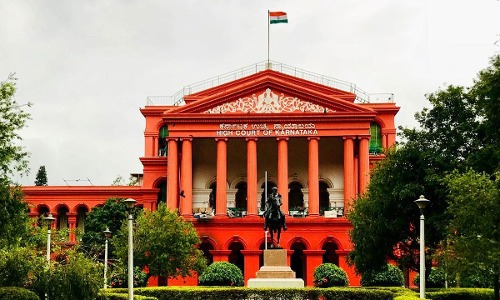


The Karnataka High Court in the case M/S Tejas Arecanut Traders Versus Joint Commissioner Of Commercial Taxes observed and has set aside the order passed by the Appellate Authority to deposit 10% of the entire amount in dispute, which included tax, interest, a fine, a fee, and a penalty.
The bench headed by Justice Sachin Shankar Magadum in the case observed wherein the appeal is filed under Section 107(6) of the GST Act, thus, the appellant is required to deposit only 10% of the disputed tax amount and not 10% of the entire disputed amount, including penalty, fine, and interest.
The appellate authority in the case while examining the maintainability of the appeal under Section 107(6) of the GST Act, 2017, has declined to admit the appeal.
It has been noted by the appellate authority that the petitioner has failed to comply with the mandate of pre-deposit and, therefore, has declined to admit the appeal filed by the petitioner under Section 107(6) of the CGST Act.
In the present case, the petitioner or assessee contended that the order of the appellate authority calling upon the petitioner to deposit 10% of Rs. 1,41,11,633 was without jurisdiction.
Therefore, the court stated that the order is in disregard of Section 107(6) of the CGST Act.
The petitioner in the plea challenged the entire demand confirmed in the confiscation order and the expression ‘tax in dispute’ as provided under Section 107(6) of the CGST Act does not include interest, penalty, fine, or fee. As per Section 107(6) of the CGST Act, the deposit of 10% of the disputed tax amount means only the tax amount and not the entire composite amount comprising tax, fine, penalty, and fee.
It has been contended by the department before the court that the petitioner, by questioning the pre-deposit quantum, is virtually wherein seeking to defeat the provisions of the appeal.
Therefore, the court observed that the petitioner is disputing the claim of the enforcement officer in its entirety, he is bound to pay 10% of the entire amount determined by the enforcement officer.
It has also bene noted by the court that is no such need for the petitioner to deposit any percentage of the disputed interest, fine, fee, or penalty arising from the impugned order. Thus, the legislative intent as construed from Section 107(6)(b) of the CGST Act is that the aggrieved party has to pre-deposit 10% of the tax liability, and it does not extend to penalties, fees, or interest when the petitioner has contested the entirety of the tax liability.
The court while considering the facts and circumstances of the case observed and has held that an order passed by the appellate authority calling upon the petitioner to pre-deposit 10% of Rs. 1,41,11,633 is set aside and since the petitioner has already deposited 10% of the tax liability, which is to the tune of Rs. 67,200.
The court directed the appellate authority is directed to admit the appeal and decide the same in accordance with the law.
The counsel, Advocate Sameer Gupta assisted by Adv. Gayatri S.R. appeared for the Petitioner. Th counsel, AGA Shivaprabhu. S. Hiremath represented the respondent.